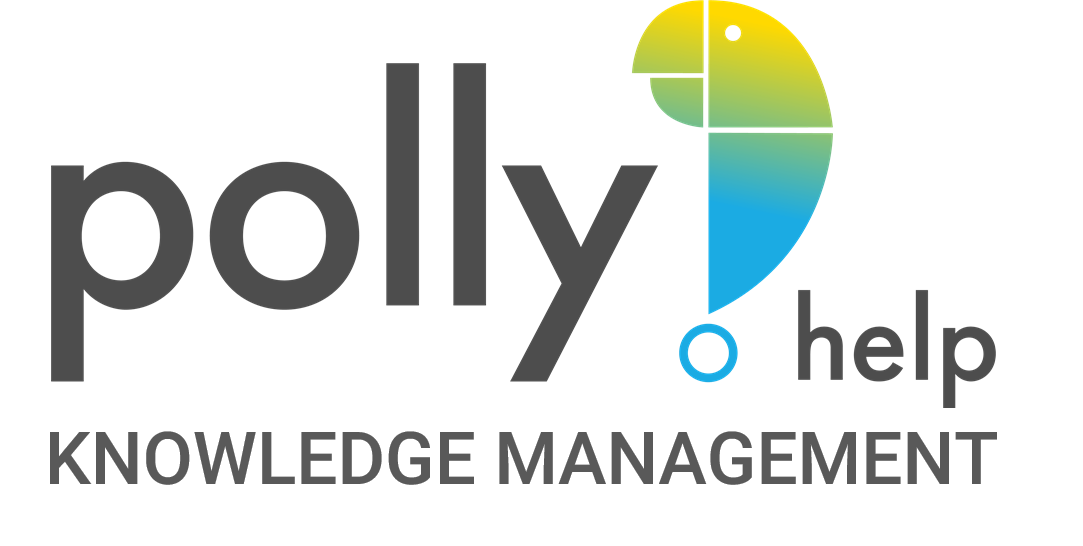The landscape of employment continues to evolve with vastly expanding opportunities for professionals in the knowledge-based job market. Among these burgeoning careers, remote knowledge management careers stand out as beacons of the digital workforce. As businesses adapt to a more flexible work environment that transcends physical office spaces, we witness a clear shift towards prioritizing flexibility in employment. This change reflects not only in the innovative technologies these roles encompass but also in the diverse, global talent pool that embodies this new era of work.
Organizations are swiftly reimagining the traditional workspace, touting the myriad benefits that come with the work-from-anywhere model. The rise of remote work is more than a trend; it’s a necessary response to a changing world. The ability to manage and disseminate knowledge across time zones and continents has become a coveted asset to companies aiming to maintain a competitive edge in their respective industries.
Key Takeaways
- The knowledge-based job market opens doors to a wealth of remote work possibilities.
- Remote knowledge management careers are defining the future of the digital workforce.
- There’s an increasing trend towards employment that offers flexibility, catering to a global talent pool.
- Remote roles offer strategic advantages, including cost savings and productivity enhancements.
- The pandemic-induced shift has made the work-from-anywhere culture an integral component of modern business operations.
- Advanced communication and collaboration tools are pivotal in facilitating successful remote knowledge work.
The Advent of Remote Work in Knowledge Management Post-Pandemic
As industries recalibrated in the aftermath of the pandemic, the emergence of remote working trends transformed the landscape of knowledge management. The adoption of a work-from-anywhere (WFA) culture has not only been a question of necessity but also a reflection of a growing appreciation for professional flexibility. In this new remote working environment, productivity gains are paired with access to global talent, drawing a future where geographical boundaries seem increasingly irrelevant.
The Shift to Work-From-Anywhere (WFA) Culture
The pandemic has irrevocably shifted the corporate mindset towards the feasibility of remote work. WFA culture, now intrinsic to many knowledge-based sectors, offers a model that is not just a temporary fix but a long-term strategy for growth and competitiveness. This paradigm shift allows companies to benefit from a distributed workforce, harnessing professional flexibility as a significant asset.
Benefits of Doing Knowledge Work Remotely
- Increased Productivity: Many employees report higher productivity levels when working from remote or hybrid environments, free from the usual office distractions.
- Work-Life Balance: Remote work enables professionals to design a work schedule that can better align with personal life and responsibilities.
- Expanded Talent Pools: Organizations are no longer restricted to local hiring, enabling them to access a pool of global talent.
- Cost Savings: Both employers and employees can have significant cost savings through reduced needs for office space, commuting, and related expenses.
Addressing the Challenges of Remote Knowledge Management
Adapting to a fully remote or hybrid model involves overcoming certain challenges. Communication and collaboration can become strained without physical proximity. However, innovative solutions and best practices are helping to navigate these issues, ensuring effective knowledge sharing and preservation of workplace culture across distances.
Understanding Knowledge Management as a Career
The burgeoning knowledge economy has paved the way for varied and dynamic KM careers, where professionals work to harness information to drive organizational success. In an era where data is king, knowledge management has become an essential arm of any forward-thinking company’s strategy, encompassing a range of KM job roles and KM strategies dedicated to the optimization of learning and performance.
Those inclined towards a KM career often find themselves at the intersection of technology, process design, and corporate culture. The job involves mastering how information is collected, analyzed, and deployed to enhance the strategic capabilities of an organization. This intersection is steadily defining new job roles and creating demand for skills that align with modern, data-driven approaches to business.
- Developing frameworks to facilitate knowledge sharing
- Implementing and monitoring analytics and KPIs
- Guiding continuous improvement in knowledge processes
Professionals in this field are expected to forge KM strategies that not only manage existing knowledge assets but also encourage the generation of new insights that can lead to sustainable competitive advantages. KM careers thus offer a challenging but rewarding frontier for those looking to impact how organizations navigate information in the knowledge economy.
The Essential Skills for Remote Knowledge Management Jobs
The dynamic field of Knowledge Management (KM), particularly in the context of remote employment, demands specialized expertise. Candidates seeking remote KM roles must adeptly combine a rich skillset consisting of strategic KM skills, technology adoption, remote collaboration, and distributed team management. These competencies enable them to navigate the intricacies of today’s knowledge-driven workplaces effectively.
Strategic Planning and Organization
To thrive in a remote KM position, proficiency in strategic planning is pivotal. It involves setting attainable goals, formulating actionable plans, and constantly revising tactics as per the fluctuating demands of the distributed work environment. Strategic foresight allows for the alignment of individual knowledge objectives with broader organizational targets, which is crucial in a remote setting.
Adapting Technologies for Knowledge Sharing
Embracing and adapting new technologies is non-negotiable for remote knowledge professionals. They’re expected to not only understand but also implement an array of digital tools for efficient knowledge capture and dissemination. From AI platforms to cloud-based repositories, the ability to integrate these technologies forms the backbone of an interactive and collaborative remote workplace.
Communication and Collaboration in Distributed Teams
At the heart of a telecommuter’s KM skillset lies the ability to communicate and collaborate effectively with a geographically scattered team. The remote knowledge worker must excel in fostering a cooperative environment that bridges time zones and cultural barriers through clear and concise communication channels.
| KM Skill | Application in Remote Work | Benefits for Distributed Teams |
|---|---|---|
| Strategic Planning | Developing KM roadmaps that align with remote operations | Ensures everyone is working towards common goals, despite physical separation |
| Technology Proficiency | Implementing and training teams on new KM systems | Leverages cutting-edge tools for seamless knowledge transfer |
| Effective Communication | Utilizing collaborative platforms to share insights and feedback | Cultivates a deep sense of connection and teamwork across locations |
In summary, the contemporary remote KM specialist must be a proficient planner, a tech-savvy innovator, and an expert in nurturing a culture of collaboration within distributed teams. By honing these key skills, KM professionals ensure a fluid exchange of knowledge that is critical for organizational growth and resilience in an increasingly borderless business world.
knowledge management jobs remote: Finding Your Opportunity
In the digital age, the hunt for the perfect job has transcended geographical restrictions. When it comes to finding remote KM opportunities, the potential for securing online knowledge management positions has expanded considerably. Engaging in KM job searching is no longer confined to local job boards, with virtual KM employment burgeoning across a variety of digital platforms. Let’s explore some key strategies for discovering these opportunities.
- Networking: Build connections with professionals in the same field through social media, professional associations, and virtual conferences.
- Online Job Portals: Actively search on specialized job boards that list remote knowledge management roles.
- Company Websites: Target organizations known for their remote work culture and check their career pages frequently.
- Freelance Marketplaces: Consider contract-based or freelance remote KM opportunities to gain experience and build your portfolio.
An effective approach to procuring a role in this domain is to showcase your ability to tackle complex problems and to demonstrate how your distinctive skills can enhance an organization’s operational capabilities, all while working remotely. The adaptability to different industrial demands and the capacity for teamwork across virtual platforms are assets highly regarded in potential candidates.
| Platforms to Explore | Features | Benefits |
|---|---|---|
| Professional networking, job listings, company insights | Networking opportunities with industry leaders, access to the latest KM jobs | |
| Indeed | Vast database of job listings, salary comparisons, company reviews | Custom job alerts, diverse range of KM positions |
| Glassdoor | Company reviews, salary reports, interview insights | Understanding of company culture, expectation alignment |
Commitment to continuous learning and professional development is a staple in the field of knowledge management. Therefore, seeking out roles that not only fit your skill set but also offer opportunities for growth is paramount. Embrace the chance to contribute substantially to the exigencies of remote work and be a part of the evolution that comes with virtual KM employment.
To sum up, job seekers in the knowledge management sector should immerse themselves in the myriad of digital resources designed to bridge the gap between talent and enterprises. Whether it be through traditional job hunting methods or more innovative approaches like networking and leveraging freelance platforms, there’s a world of opportunity for those seeking remote roles in KM. By illustrating your readiness to adapt and contribute to this dynamic field, you position yourself at the forefront of organizational innovation and leadership.
Global Trends in Remote Knowledge Management Opportunities
As the dust settles in the post-pandemic world, remote knowledge management (KM) roles continue to flourish, largely influenced by global KM job trends and the emergence of international remote opportunities. With businesses recognizing that a diverse workforce brings a wealth of innovative ideas and perspectives, it’s an imperative that professionals stay aware of how the market influences KM jobs and the potential to work with leading international teams.
Countries Leading in Remote KM Job Offerings
The landscape of remote knowledge management is not uniformly distributed across the globe. Certain regions are pioneering in offering KM positions, bolstering their technological infrastructure to accommodate the digital workforce. These countries, recognizing the contribution of KM to their economies, are becoming hotspots for knowledge professionals seeking to capitalize on remote work possibilities.
- United States
- United Kingdom
- Canada
- Australia
- Germany
- Singapore
How the International Market is Shaping KM Careers
The explosion of remote roles has opened doors to an international marketplace for knowledge management professionals. Industries worldwide now demand a blend of technical know-how with the agility to navigate cross-cultural environments. This paradigm shift challenges KM specialists to hone their skills to meet the needs of a diverse and ever-expanding global audience.
- Cultural Adaptation: Understanding and integrating into different corporate cultures.
- Strategic Operations: Managing KM initiatives that consider local and global business practices.
- Collaborative Technologies: Using platforms that support international connectivity and information sharing.
Key Industries Driving the Demand for Knowledge Management Roles
The escalating industry demand for KM is a testament to the value that knowledge management brings to the modern enterprise. As we evaluate the knowledge-centric sectors at the forefront, it’s clear that these industries serve as the backbone for KM job growth. The infusion of technology, especially in the era of digitization, further cements the significance of KM roles.
Particularly, sectors such as agriculture, construction, field services, transportation, and manufacturing are heavily invested in adopting KM strategies. These industries rely on KM to harness IoT data and translate it into actionable insights for safety, efficiency, and sustainability. The professionals in this field are tasked with a pivotal role that spins the wheel of innovation within their respective industries.
| Industry | Focus Area | Impact of KM |
|---|---|---|
| Agriculture | Sustainable farming practices | Enhanced crop management and yield prediction |
| Construction | Project management efficiency | Streamlined operations and risk management |
| Field Services | Service quality and compliance | Optimized routing and service delivery |
| Transportation | Logistics and supply chain optimization | Improved navigation and cargo tracking |
| Manufacturing | Process automation and safety | Real-time monitoring and predictive maintenance |
Given the intersection of these sectors with global GDP, it’s no surprise that the KM job growth is reflective of an underlying need to manage knowledge effectively. This growth is not just a trend but a clear indicator of how integral knowledge management is in propelling industries forward, making KM practitioners key players in this evolving landscape.
Corporate Case Studies: Companies Excelling in Remote Knowledge Management
In today’s digital landscape, the implementation of robust corporate KM strategies has been fundamental to organizational resilience and innovation. KM success stories often highlight the pivotal role that remote KM best practices play in reinforcing corporate agility and competitive edge. Let’s explore how leading enterprises have successfully integrated remote knowledge management into their operational fabric.
Adopting Best Practices from Leading Firms
Industry leaders have set a precedent for excellence by establishing remote KM frameworks that facilitate seamless knowledge transfer and collaboration. These strategies are informed by an in-depth understanding of digital tools, employee engagement techniques, and the creation of a culture that values shared wisdom across borders.
Impact of Remote Knowledge Management on Organizational Success
The influence of remote KM is most apparent in the way organizations have scaled their operations while protecting sensitive client data and maintaining high performance standards. The integration of KM practices remotely has also engendered a new paradigm of workforce efficiency and innovation.
- The use of centralized knowledge repositories streamlined access to information for global teams.
- Collaborative platforms enabled real-time communication and problem-solving among remote employees.
- Data analytics and AI tools provided insights for continuous improvement in knowledge dissemination.
How AI Enhances Remote Knowledge Management Jobs
As the paradigm of work continues to evolve within a digital landscape, the utilization of AI in KM has become a cornerstone for driving efficiency and innovation in remote knowledge management jobs. Embracing AI-powered knowledge sharing not only automates mundane tasks but also facilitates a shift towards knowledge automation, where real-time knowledge processing and decision-making are streamlined for improved productivity.
Professionals in the field are now harnessing the capabilities of AI to extract and analyze complex data sets, enabling more informed decisions and strategic insights. This integration of AI into KM systems is enhancing remote collaborations and knowledge exchanges, ensuring that geographically dispersed teams remain in sync and up-to-date with the latest informational assets.
Here are some examples of AI applications that are transforming the remote knowledge management landscape:
- AI-driven content curation tools that personalize information feeds based on user preferences and past behavior
- Intelligent chatbots and virtual assistants that provide instant access to information repositories and assist with knowledge retrieval
- Machine learning algorithms that predict knowledge trends and identify areas of opportunity within large volumes of organizational data
| AI Application | Benefit to KM Jobs | Impact on Knowledge Flow |
|---|---|---|
| Automated Data Analysis | Reduces time spent on data processing | Accelerates knowledge dissemination |
| Machine Learning | Enhances prediction accuracy | Improves strategic foresight |
| Natural Language Processing | Facilitates comprehension of unstructured data | Enables nuanced understanding |
The proliferation of AI-powered tools has also played an instrumental role in mitigating challenges associated with remote work—such as communication barriers and information overload—by providing sophisticated platforms for knowledge automation and sharing. As AI continues to refine the capabilities within KM, remote knowledge professionals are empowered to perform at unprecedented levels of efficiency and effectiveness.
Breaking Down the Knowledge Management Hierarchy
Grounded in systematic procedures and methodologies, Knowledge Management (KM) encompasses a broad spectrum of job titles and roles, each with distinctive responsibilities that contribute to the organizational information ecosystem. In the pursuit of career development in KM, one’s path may evolve through a variety of job titles within the KM hierarchy, reflecting a range of expertise levels and spheres of influence.
Understanding Different KM Roles and Their Responsibilities
The KM field navigates through structured levels that align with one’s expertise and impact within an organization. Beginning with entry-level positions like Knowledge Coordinators, individuals can ascend to Knowledge Strategists or Chief Knowledge Officers, each role designed to enhance the efficiency and innovation of knowledge dissemination throughout the company.
- Knowledge Coordinator: Gatekeepers of data repositories, responsible for the day-to-day management of knowledge systems.
- Knowledge Analyst: Experts in interpreting and analyzing data to provide insights and identify knowledge gaps.
- Knowledge Manager: Supervisors overseeing the strategic implementation of KM tools and processes.
- Knowledge Strategist: Professionals adept in formulating long-term KM tactics aligned with organizational goals.
- Chief Knowledge Officer (CKO): C-level executives positioned to anchor KM as a core asset within the corporate strategy.
Career Progression Paths in Knowledge Management
Advancement within the KM domain is intricately linked to the mastery of specialized skills and the expansion of one’s influence on knowledge-driven initiatives. Career development in KM is marked by the transition from executing and managing knowledge-centric tasks to the strategic navigation of the company’s intellectual assets.
| Role | Responsibilities | Potential Next Steps |
|---|---|---|
| Knowledge Coordinator | Maintaining content systems, assisting in knowledge retrieval | Knowledge Analyst, Training Specialist |
| Knowledge Analyst | Data analysis, reporting, and recommending improvements | Knowledge Manager, Business Analyst |
| Knowledge Manager | Overseeing KM practices, developing policies | Knowledge Strategist, Information Officer |
| Knowledge Strategist | Strategic planning, aligning KM initiatives with business objectives | CKO, Director of Knowledge Services |
| Chief Knowledge Officer | Integrating KM into corporate strategy, driving organizational learning | Executive Leadership Positions |
Conclusion
As we reflect on the burgeoning field of Knowledge Management (KM), it’s clear that the KM job outlook remains bright, particularly in the realm of remote work. With the digital workforce becoming a staple in the modern business environment, KM professionals are stepping into a world where their skills are not only necessary but critical for organizational advancement. Embracing the future of remote KM, these professionals are expected to navigate an evolving landscape where flexible employment is not just a perk but an operational standard.
The influence of advanced technologies, especially the integration of Artificial Intelligence (AI), is recasting the responsibilities and opportunities within KM. The adoption of AI is driving the transformation towards more strategic, analytics-driven management roles, highlighting an era where knowledge is both an asset and a catalyst for innovation. This technological progression suggests a reshaping of knowledge-centric positions and a demand for a workforce adept in harnessing information for learning and growth.
In contemplating career reflections in KM, one cannot overlook the personal and professional growth trajectory that this field offers. The journey from knowledge worker to strategic KM leader is marked by continuous learning, adaptation to global trends, and the ability to drive change within distributed teams. As industries across the spectrum acclimate to a data-driven economy, KM professionals are set to be at the forefront, steering the digital transformation and making an indelible mark on the future of business operations.
FAQ
What are the opportunities for remote knowledge management careers?
Remote knowledge management careers offer a variety of opportunities such as KM strategist, information officer, and knowledge architect roles. These positions focus on harnessing the digital workforce and taking advantage of the flexibility in employment provided by knowledge-based job markets.
How has the COVID-19 pandemic affected the work-from-anywhere culture?
The pandemic has accelerated the shift toward a work-from-anywhere (WFA) culture, with many organizations recognizing the benefits of remote working trends. It has led to increased productivity gains, as well as greater professional flexibility by allowing access to global talent pools.
What are the key benefits of doing knowledge work remotely?
Remote knowledge work offers numerous benefits, including reduced commuting time, lower organizational costs, geographic flexibility for employees, and the potential for a better work-life balance. It also allows businesses to tap into a broader talent pool.
How can challenges in remote knowledge management be addressed?
Challenges such as communication barriers, knowledge sharing difficulties, and team socialization can be addressed through the use of collaborative technology, regular virtual meetings, and clear protocols for remote collaboration and information dissemination.
What does a career in knowledge management entail?
A career in knowledge management involves strategies and practices to enhance an organization’s ability to identify, create, represent, and distribute knowledge. It is a vital part of the knowledge economy and includes job roles ranging from data analytics to the management of KM processes and tools.
What skills are essential for remote knowledge management jobs?
Essential skills include strategic planning and organization of KM frameworks, proficiency in adapting and implementing knowledge-sharing technologies, and robust communication abilities for effective collaboration in distributed teams.
How can one find remote knowledge management job opportunities?
Job seekers can find remote KM opportunities by networking through professional platforms, engaging in online communities, exploring job boards dedicated to virtual KM employment, and maintaining a strong online presence to attract global opportunities.
Which countries are leading in remote KM job offerings?
Countries like the USA, Canada, the UK, and Australia are often leading in remote KM job offerings. However, there is a growing trend of remote jobs available globally, with organizations seeking the best talent irrespective of geographic location.
What influence does the international market have on KM careers?
The international market has a significant influence on KM careers, driving the need for professionals who can adapt to various cultural and operational norms while managing KM initiatives across different countries.
What industries are driving the demand for knowledge management roles?
Industries such as agriculture, construction, field services, transportation, and manufacturing are driving demand for KM roles—seeking to improve their operations’ safety, efficiency, and sustainability.
How are companies excelling in remote knowledge management through corporate case studies?
Companies showcased in corporate case studies demonstrate success by adopting remote KM best practices such as enhancing performance evaluations, improving client data protection, and optimizing knowledge sharing within distributed workforces.
How is AI revolutionizing remote knowledge management jobs?
AI is revolutionizing remote KM jobs by enabling automated intelligent knowledge flows, optimizing information dissemination, and supporting dynamic troubleshooting and decision-making capabilities.
How do different KM roles and responsibilities impact career progression?
Understanding the KM hierarchy helps in recognizing the varied responsibilities and expertise required for KM professionals, from entry-level positions to senior management. Career progression involves advancing in strategic planning, AI enhancement, and other specialized KM domains.
What is the future outlook for knowledge management jobs, particularly remote roles?
The outlook for KM jobs, especially remote roles, is promising as technology evolves. Organizations are increasingly valuing effective KM practices, and the incorporation of AI is likely to further boost growth opportunities in the sector.






